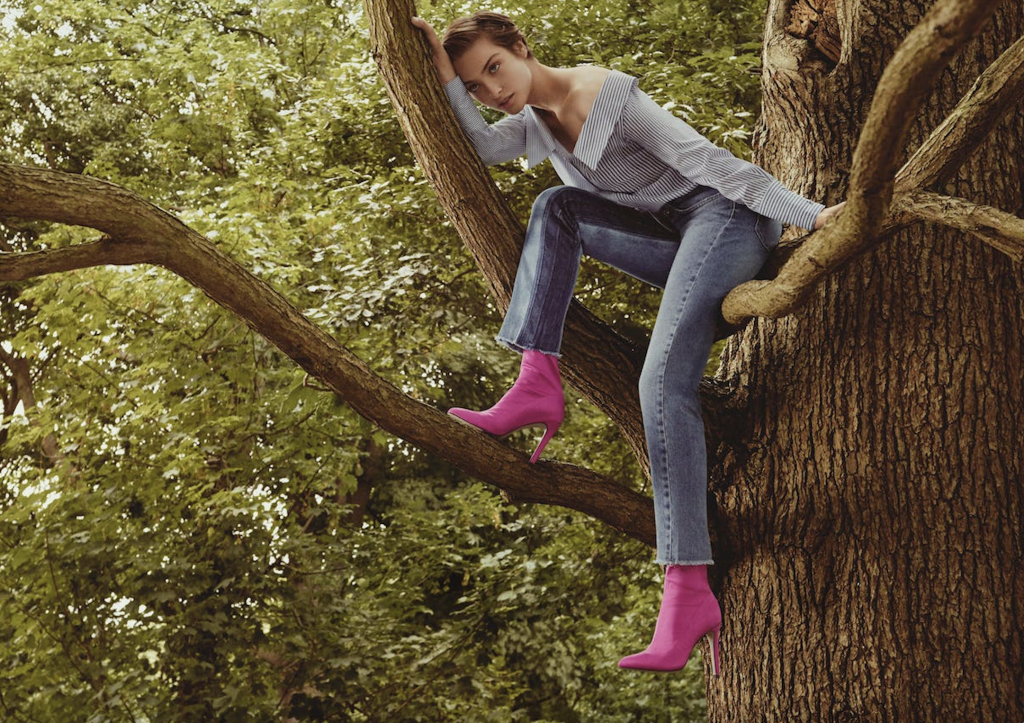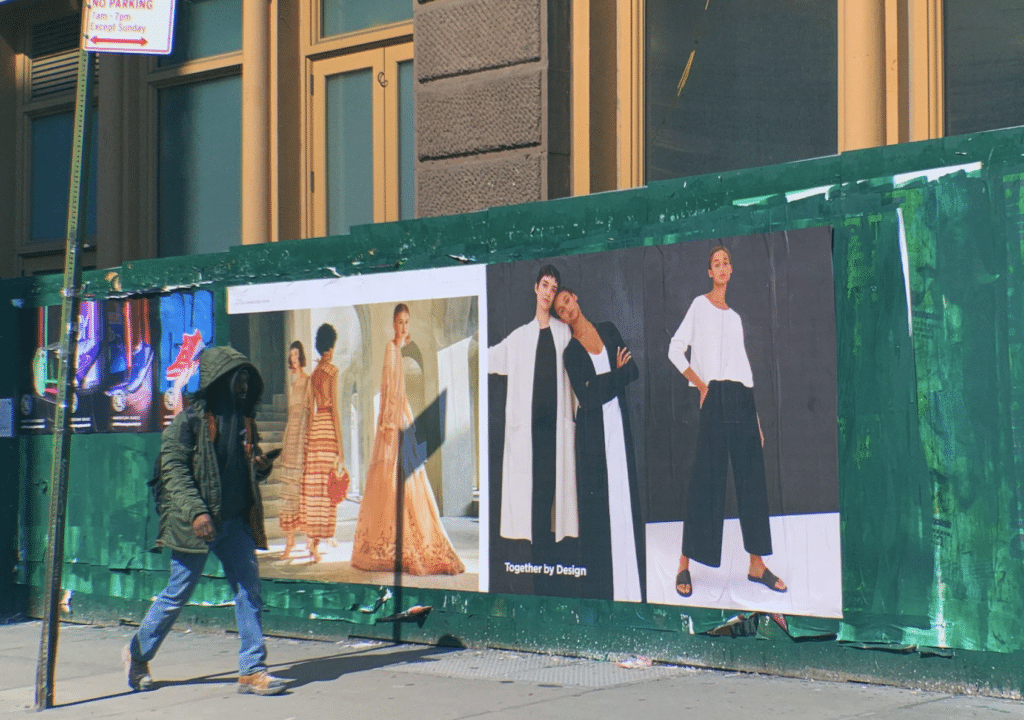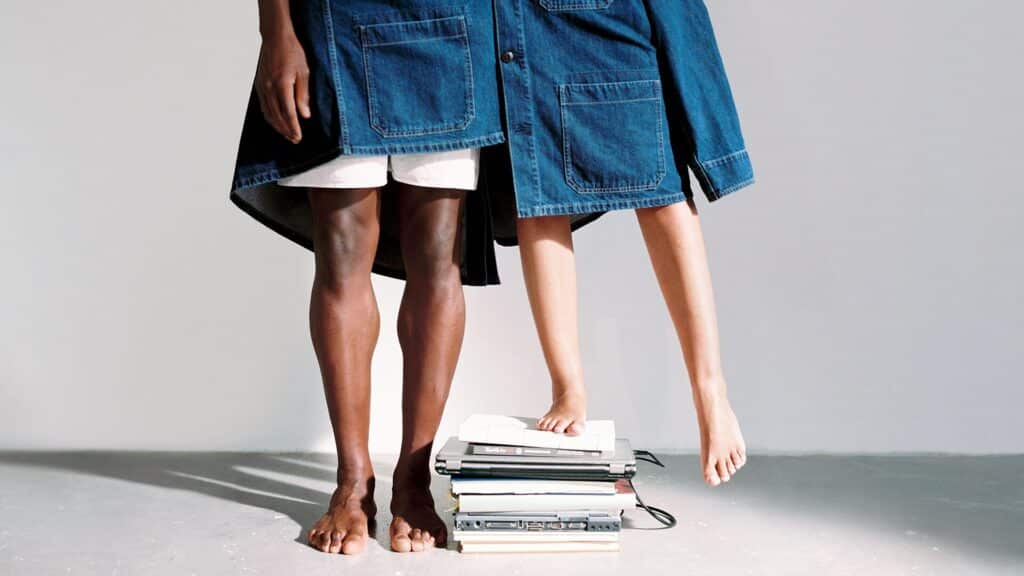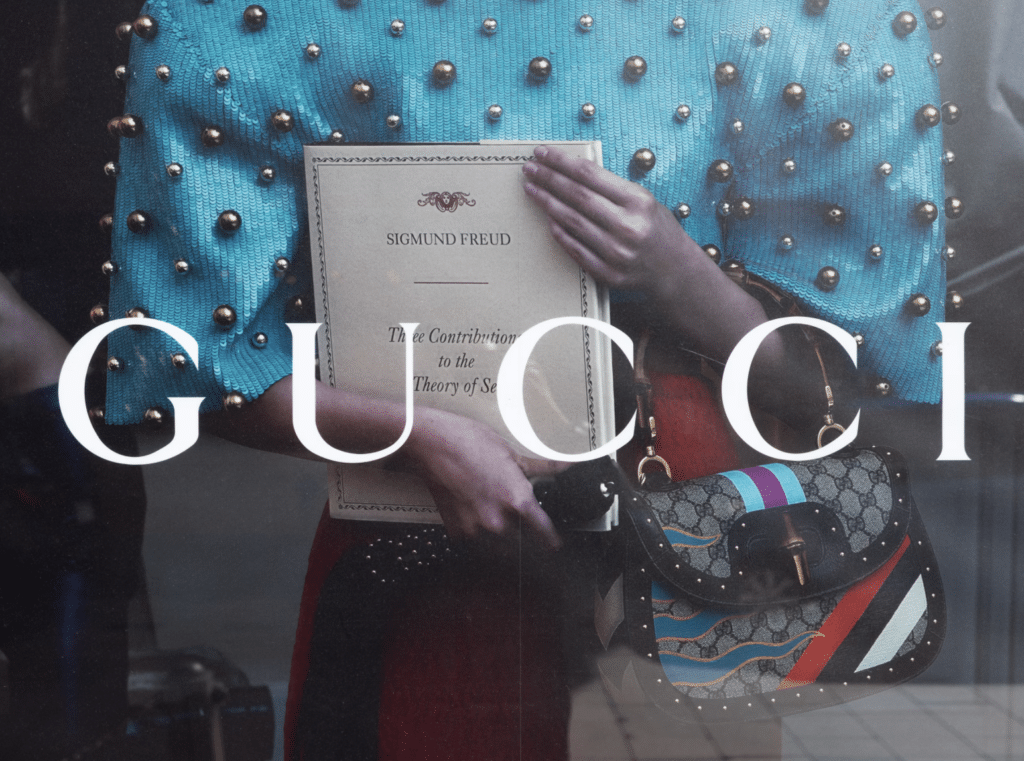Walmart made headlines this week when it revealed it would boost its fashion chops by enlisting celebrity-favored designer Brandon Maxwell to design the wares for two of its in-house brands. The fashion-focused move by Walmart comes as the Bentonville, Arkansas-headquartered retail behemoth continues to try to stay in stride with digitally-connected consumers, while also endeavoring to amass a larger piece of the mainstream apparel market (and keep up with Amazon). At the same time, rival Amazon is also garnering attention in the apparel space, as Wells Fargo analysts assert that the digitally-native retailer has overtaken Walmart to become the top apparel retailer in the U.S.
In a research note on Wednesday, Wells Fargo estimates that Amazon’s apparel and footwear sales in the U.S. grew by approximately 15 percent in 2020 to more than $41 billion, thereby, making it the holder of an 11 percent to 12 percent share of the U.S. apparel market and an even greater 34 percent to 35 percent share of all apparel sold online. “To put this in perspective, Amazon sold almost 7 times as much apparel/footwear as Macy’s,” which is the second largest player online, according to Wells Fargo’s analysts. (Macy’s generated $7.71 billion in online sales in 2020, and expects to reach $10 billion in online sales by 2023).
To put Amazon’s fashion-specific might into perspective even further: Amazon’s apparel and footwear sales are about 20 percent to 25 percent greater than Walmart’s. And Amazon’s sales in the apparel and footwear segment are expected to grow even further – to more than $45 billion – this year.
Not all is lost for Walmart, though. Citing Wells Fargo’s research, CNBC noted on Wednesday that “although Amazon has transformed into a top apparel player,” Walmart “could still make improvements to the shopping experience, like carrying more of the brands that consumers want.” This could be a critical advantage for the multinational retail corporation given that “Amazon has turned off some brands in the past” – from Nike and Birkenstock to Swatch – “and that could be hurting its ability to grow selection on the site.” Both Nike and Birkenstock famously pulled the plug on their efforts with Amazon, with Nike, in particular, cutting-short a wholesale pilot project in light of displeasure among the Beaverton, Oregon-based sportswear titan’s executives over “how unauthorized sellers continued to be widely available on Amazon.”
Until Amazon becomes a platform that “works with companies to elevate [their] brands, rather than viewing the relationship as transactional, companies that are fiercely protective of their brands (e.g. Nike), will not sell to Amazon,” the Wells Fargo analysts asserted.
The time actually might not be too far away. Amazon has notably increased its efforts to woo not only consumers but brand partners, as well, filing a growing number of lawsuits to fight fakes – and build both consumer and brand trust in process – and unveiled a handful of internal anti-counterfeiting measures. Still yet, the Seattle-based giant is also said to be quietly building up an uber-impressive team of fashion retail veterans (led by one particularly compelling free agent in the fashion retail space, according to sources for TFL) for the Luxury Stores venture that it launched in September. Starting with one well-known name at the outset, Oscar de la Renta, Amazon is slowly adding new names to its roster, which currently boasts partners, such as Elie Saab, Roland Mouret, La Perla, Altuzarra, Mark Cross, and Prada Group-owned Car Shoe.














